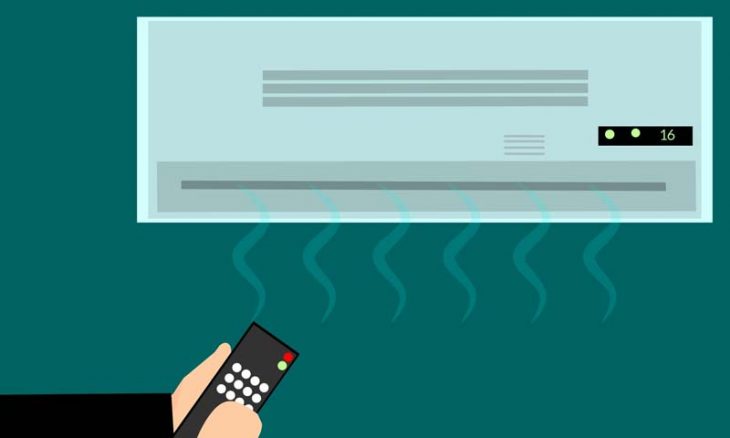
In the HVAC professional field, there are advancements constantly being made.
Understanding new advancements, how they work, and why they are important is crucial for someone that works with consumers.
People need heating and cooling, but they also want to use less energy and become more “green” for the environment.
How can new HVAC technology today impact your work tomorrow? Keep reading to find out more about tech in the HVAC industry and what you need to know.
Why Do New Technologies Matter for HVAC?
The way that the current HVAC industry trends lean appears to focus on technology advancements.
People want to lower the amount of energy they are using both at home and at work. How can this happen? The answer lies in new technology.
Heating and cooling buildings can take a lot of energy, especially if outdated methods are being employed. There are advancements being made that help lower costs and protect the environment while still keeping buildings at comfortable temperatures.
Constantly, engineers and scientists are trying to find ways to make the HVAC industry more technologically advanced and enhance the way individuals can do their jobs.
By using more technology and paying attention to changes, HVAC technicians can have more resources and opportunities to do their work effectively.
HVAC Industry Technology: What to Know
In order to be effective in your work, you need to know what the current technologies being used are. Check out some of the top HVAC hits right now below.
Solar HVAC
These systems can be installed on new or preexisting buildings. Using thermal energy and light from the sun, solar panels absorb energy and turn it into a different type of energy that consumers can use.
For heating, thermal energy is used to heat a mixture of water and antifreeze and run it through a heat exchanger. The heated air is created and heats up the building.
For cooling systems, the air is cooled using the evaporation of contained water. This is reused so that it is more sustainable in the building.
There are some buildings that have systems that can be refitted to become solar powered, so this is something to look into on upcoming projects.
Geothermal HVAC
Geothermal systems are great for HVAC because they are easy to keep consistent within a building.
There is a system of pipes underground where water is run and is heated or cooled by the ground’s temperature.
While the air temperatures go up and down throughout the year, the ground temperatures are pretty much the same when you’re far enough under the surface.
An indoor unit then will use a fan, compressor, and pump to spread the air around the building and heat or cool it efficiently.
Smart HVAC
Everyone loves smart appliances in today’s world and allowing your HVAC systems to be more communicative will benefit you in the long run.
Wouldn’t it be nice to have an HVAC system that tells you when it needs a maintenance check? How about an HVAC system that will alert you when it needs to be repaired?
Some systems with smart HVAC technology can schedule appointments for these repairs and send information to your thermostat, mobile phone, or other smart devices.
When multiple technologies are working together in this way, the system should be able to run more smoothly and save you money.
DeVAP HVAC
DeVAP (Desiccant Enhanced Evaporative) is a method of cooling the air with an evaporative cooling system.
Water is absorbed by a honeycomb media and then a fan blows the water through it, causing evaporation. The air gets cooler as the water evaporates and is then released into the HVAC system.
DeVAP HVAC systems will use a desiccant to absorb humidity straight from the air. It gives people the same cool and dry air that current air conditioners offer without using as much energy or refrigerant.
Sustainable HVAC Building Design
As new buildings are created, they are being designed with their sustainability as the big focus.
Green building, green construction, and sustainable building all mean the same thing – how can we make buildings that use less and still function as needed?
The HVAC system in these new buildings is important because heating and cooling are major energy consumers. Alternative power sources, natural airflow, and updated ventilation systems are some of the big players in new building design.
How Can You Stay Up to Date?
The best way to stay current with trends in HVAC technology is to do your own research and share information with other professionals.
You can also take some time to read information from prominent HVAC magazines and websites because they will publish articles that will give you more information.
Don’t be afraid to use the internet and search terms you don’t understand! It will help you, in the long run, to stay more updated with new technologies.
Learn the additional skills you may need to be technologically savvy, but also effective in other areas. Remember to hone and master the basics first and always stay communicative with others in the field.
If necessary, it may be worthwhile to get a little extra education on different topics in HVAC. For individuals that have been in the field a long time, there are many new things that may be helpful to learn about to help future consumers.
Using HVAC Technology in the Future
As you can see, the HVAC industry is evolving into a more sustainable and efficient field.
People want to save money and save the environment at the same time. HVAC professionals can help make this happen!
To see how tech is changing the HVAC industry, check out our website to learn more.

